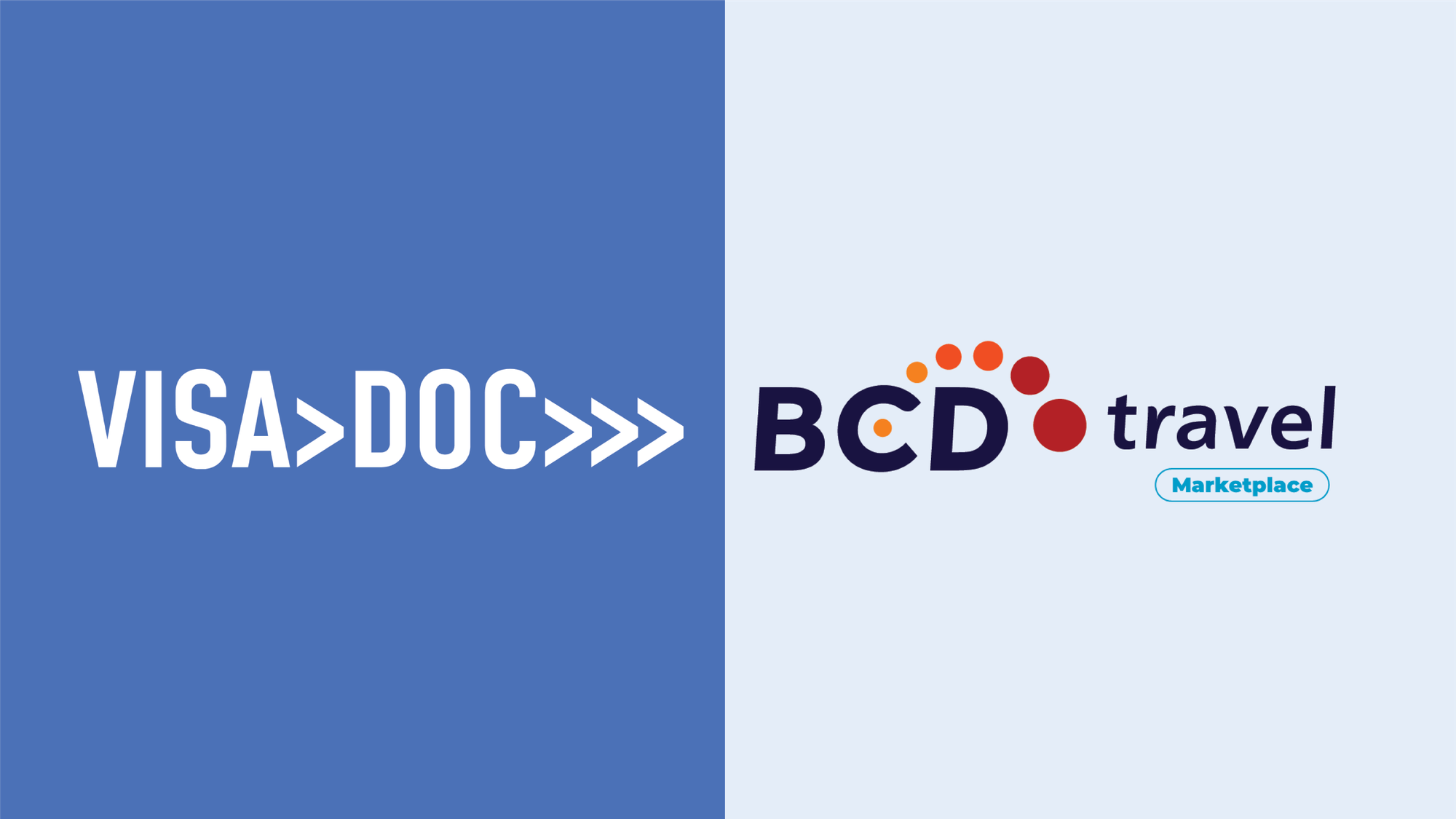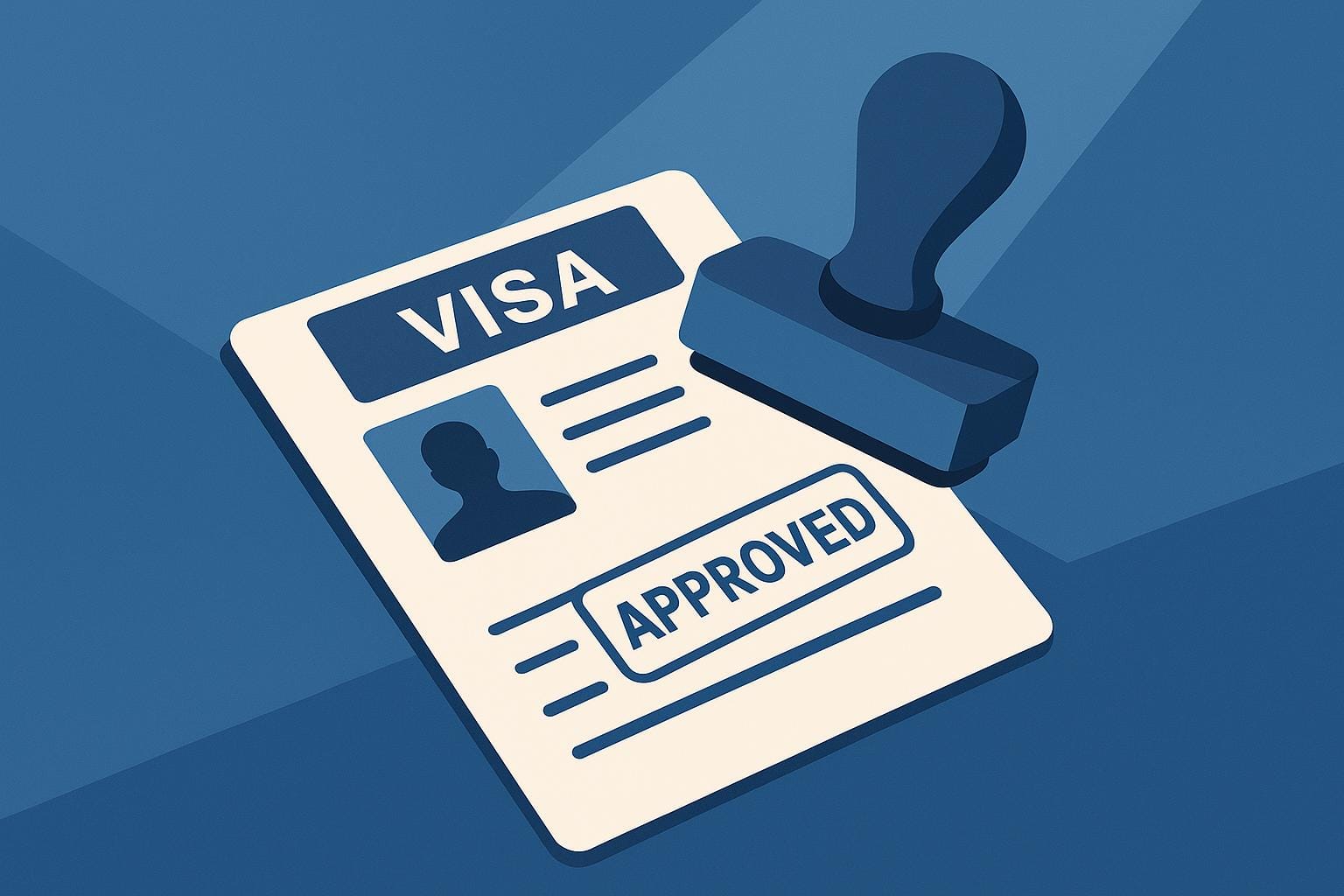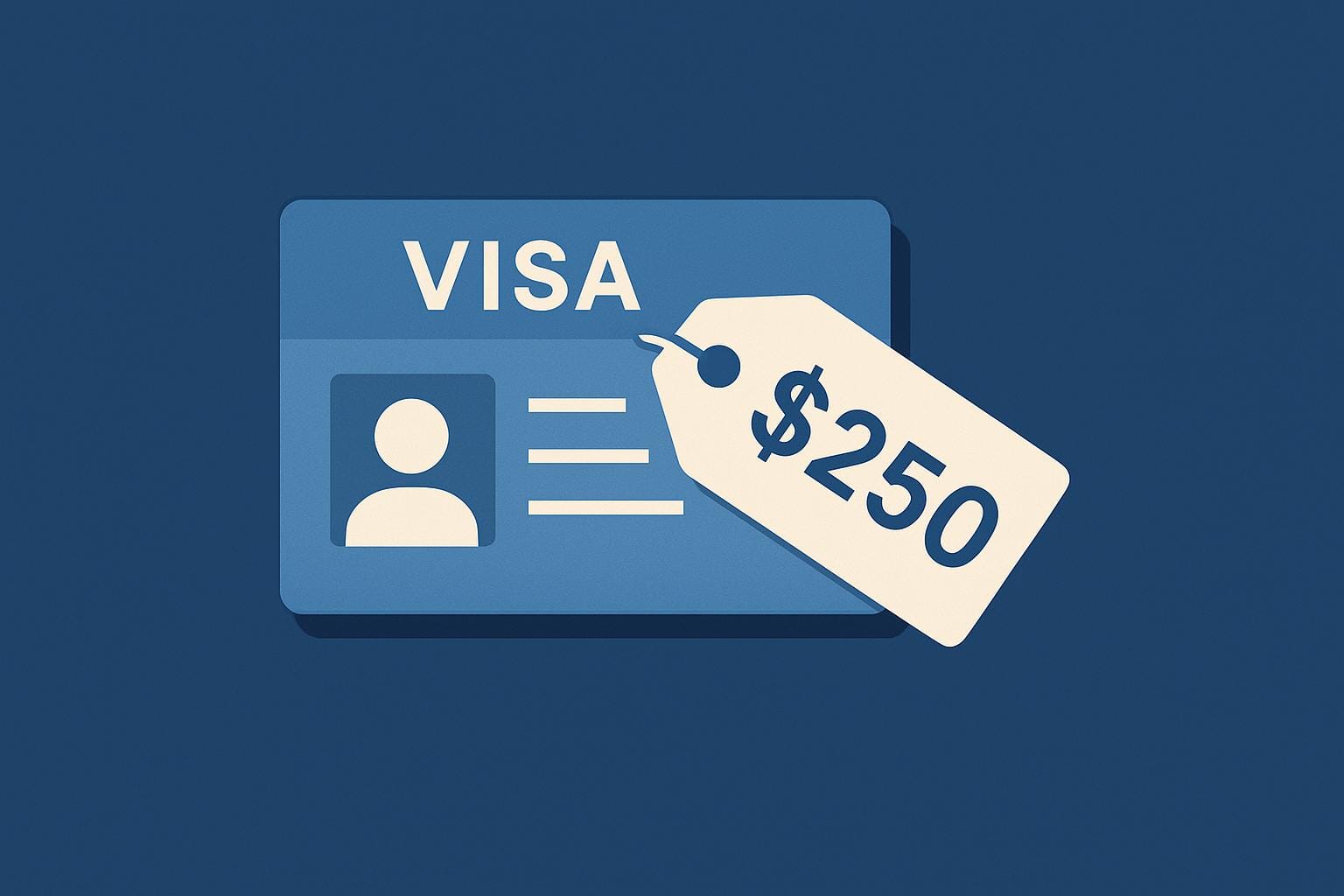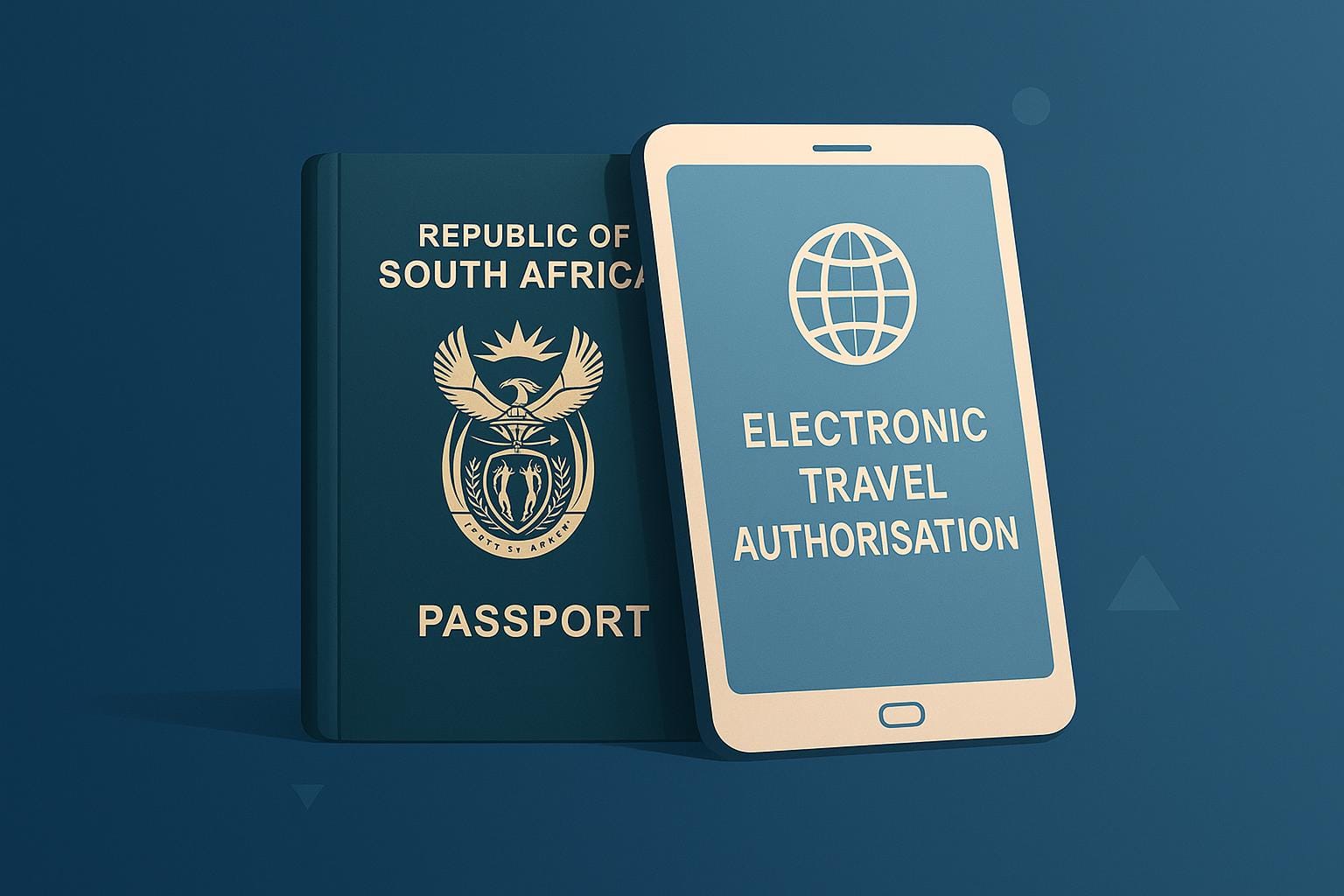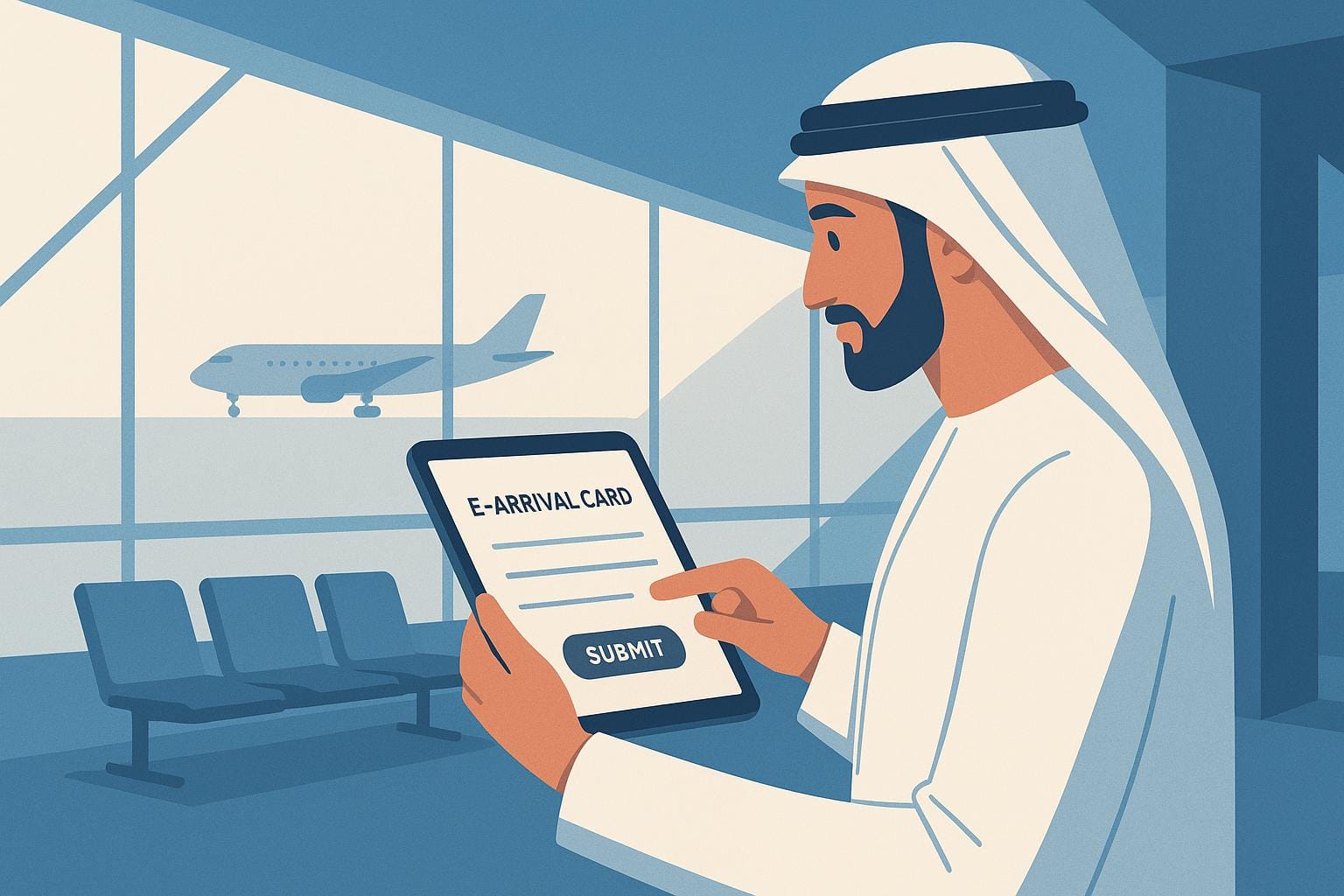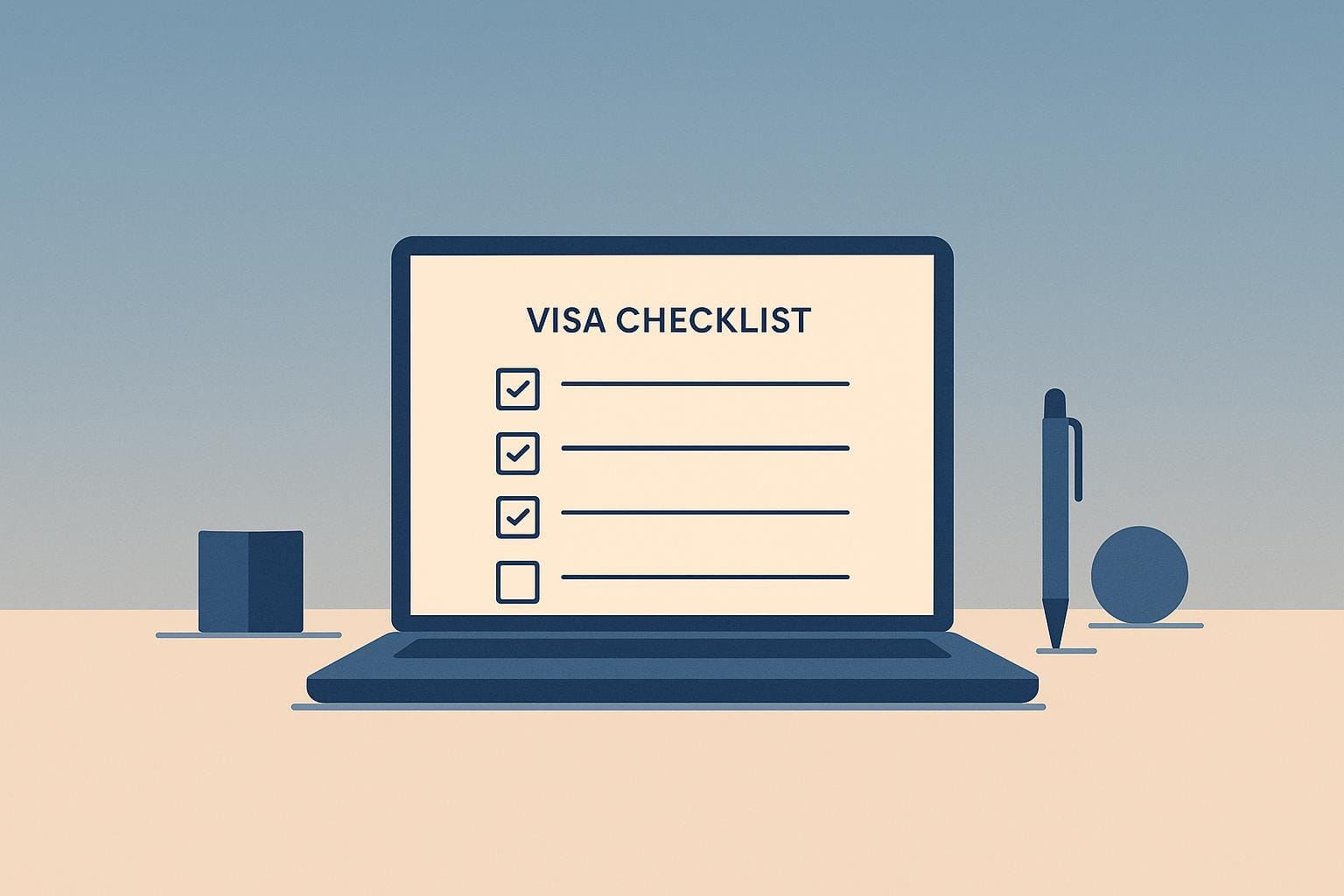Want to collaborate on cutting-edge R&D in Israel? The Short-Term R&D Collaboration Visa makes it easier for international experts to work with Israeli companies. Here's what you need to know:
- Purpose: Supports joint research projects and knowledge sharing between global professionals and Israel's innovation ecosystem.
- Eligibility: Open to experts with advanced qualifications or experience in fields like technology, science, and engineering.
- Key Benefits: Offers financial support for approved projects, with up to 40% of expenses covered by the Israel Innovation Authority.
- Application Process: Requires an ETA-IL (mandatory since August 2024), sponsorship by a certified "High Technological Knowledge Corporation", and specific documentation.
- Visa Duration: Valid for up to one year, renewable annually for up to five years.
Quick Tip: To streamline the application process, tools like VisaDoc can help HR teams manage visas efficiently and avoid compliance issues.
This visa programme is a gateway to Israel's thriving innovation sector, enabling global partnerships and advancing R&D efforts.
Eligibility Requirements for the Short-Term R&D Collaboration Visa
Israel's Short-Term R&D Collaboration Visa is designed to attract international talent in research and development (R&D). It lays out specific eligibility criteria for both sponsoring organisations and individual applicants to ensure effective partnerships within Israel's thriving innovation ecosystem. Below, we break down the requirements for companies and individuals.
Company Sponsorship Requirements
Both Israeli and foreign companies are eligible to sponsor applicants for this visa - even if the foreign company has no registered branch or subsidiary in Israel. This flexibility allows global firms to collaborate with Israeli partners without needing a local footprint.
To sponsor applicants, companies must be certified by the Israel Innovation Authority (IIA) as a "High Technological Knowledge Corporation". This certification is a prerequisite for accessing the Hi-Tech Permit (HTP) system, under which the visa is issued. Companies must demonstrate their engagement in advanced technology and their capacity to contribute to Israel's innovation landscape.
For multinational corporations, the R&D Collaboration with Multinational Corporations Program (MNC) provides a framework for partnerships with Israeli companies. This programme allows joint ownership or non-exclusive licences of intellectual property, provided both parties actively contribute to its development.
Sponsoring organisations must also align their projects with Israel's broader innovation goals. The country's hi-tech ecosystem includes incubators, R&D centres, technology transfer units, start-ups, mature tech firms, investors, and venture capital networks.
Individual Applicant Requirements
Individual applicants must meet high standards, reflecting Israel's aim to attract top-tier talent. Typically, this means holding advanced degrees (Master’s or higher) in sought-after fields or possessing significant professional experience. The focus is on experts in areas like technology, science, engineering, and academic research who can fill skill gaps in the Israeli workforce.
Applicants need to provide detailed documentation, including:
- A valid passport
- A signed employment contract
- Academic or professional credentials
- A police clearance certificate
- A medical certificate
- Recent passport photos
All documents must be translated into Hebrew and notarised. A medical examination, adhering to Israeli health standards, and a clean criminal record are also required. Furthermore, applicants must clearly demonstrate how their expertise addresses specific gaps in the Israeli market.
Allowed Activities Under the Visa
The Short-Term R&D Collaboration Visa permits activities that support genuine R&D efforts while maintaining a clear distinction from employment. Any productive work requires a separate work permit.
Permitted activities include:
- Participating in collaborative research projects
- Attending meetings or consultative sessions
- Engaging with Israeli tech firms in a non-employment capacity
However, tasks such as joining R&D teams, hardware installation, or providing field service support require prior approval from immigration authorities.
The Short-Term Permit (STP) framework allows foreign experts from visa-exempt countries to address temporary, specialised tasks for up to 90 days per calendar year.
Educational activities fall under specific guidelines. For instance, experts can deliver unpaid lectures on a visitor visa (per diem allowed) as long as the organising entity does not profit. On the other hand, short-term training is considered work and requires a B-1 work visa.
Business visitors under the B-2 visa category are restricted to activities such as attending meetings. These visits must be brief, and no employment is permitted. Any hands-on work requires proper authorisation.
The distinction between collaborative efforts and direct employment is crucial. Successful applicants typically focus on activities like planning sessions, strategic consultations, and knowledge sharing - steering clear of productive work that would necessitate a work permit.
Application Process and Required Documents
The Short-Term R&D Collaboration Visa, introduced in 2018 by the Innovation Authority and the State Population and Immigration Authority, simplifies the process for foreign high-tech experts entering Israel. Below is a detailed guide to help you navigate the application process and gather the necessary documents.
Step-by-Step Application Guide
To begin the process, applicants must register for an ETA-IL (Electronic Travel Authorisation for Israel). This became mandatory on 1 August 2024. Even visa-exempt travellers, such as those from the United Kingdom, need to obtain an ETA-IL at least 72 hours before their flight. The ETA-IL system was initially tested starting 1 June 2024 for passport holders from the United States and Germany before being expanded to other countries.
Once the ETA-IL is approved, the sponsoring company takes over by submitting the formal visa application via the designated permit system. There are two main options for companies:
- Short-Term Permit (STP): Designed for faster processing. Once the work permit is approved, the applicant can travel to Israel and obtain the B-1 visa from the immigration office.
- Hi-Tech Permit (HTP): Suitable for longer-term arrangements but requires the company to be certified as a "High Technological Knowledge Corporation" by the Israel Innovation Authority.
For those working remotely, it’s advisable to consult an immigration lawyer to confirm whether this falls within the scope of a visitor visa.
Required Documents Checklist
Applicants must prepare the following documents:
- A completed visa application form
- A CV
- The company’s certificate of incorporation, including an updated shareholder list
If any documents are in a foreign language, they must be translated into Hebrew and certified appropriately. In some cases, applicants may also need to attend a personal interview at an Israeli mission.
Visa Fees, Processing Times, and Duration
The short-term visa application fee is £22 as of 2025. Processing times vary depending on the route:
- STP Route: Expedited processing typically takes 6–10 business days, with simpler cases processed in as little as 5 days. More complex applications may take up to 45 business days.
Short-term R&D visas are initially valid for up to one year and can be renewed annually for a maximum of five years. In some cases, the innovation visa framework allows a cumulative validity of up to 27 months. Additionally, spouses of foreign experts may qualify for work visas once the expert’s visa is issued.
While the process is designed to minimise costs, applicants should account for additional expenses such as document translation, legal advice, and travel for interviews. These costs, though extra, are manageable under the streamlined visa programme.
Compliance and Legal Requirements for Visitors and Sponsors
Israel's R&D collaboration environment operates under strict compliance and legal frameworks. Both visitors and sponsoring organisations must adhere to these rules to avoid legal issues and maintain good relations with Israeli authorities.
Visitor Compliance Requirements
Visitors participating in R&D collaborations in Israel must follow specific rules during their stay. Engaging in any form of employment is strictly prohibited under the R&D collaboration visa. This restriction applies universally, regardless of the nature of the work or any form of compensation.
As mentioned in the Application Process section, travellers from visa-exempt countries, such as the United Kingdom, must secure an approved ETA-IL before arriving in Israel. Overstaying or breaching visa terms can lead to penalties, so it's critical to track the duration of your stay carefully.
For those applying for longer-term visas, it's essential to ensure that your passport is valid for at least nine months from the start of the visa process. Additionally, visitors must strictly follow the stipulations of their specific visa type throughout their time in Israel.
With these visitor obligations in mind, let’s look at the responsibilities of sponsoring organisations.
Sponsoring Organisation Responsibilities
Sponsoring organisations play a pivotal role in ensuring compliance with Israeli immigration laws. Beyond the visa application, their responsibilities include securing proper work permits before submitting visa requests.
Employers must confirm that job applicants are authorised to work by utilising the Immigration Authority's online database. However, this verification does not exempt them from obtaining the necessary work permits for sponsored visas. Any changes to employment arrangements often require a new visa.
Foreign employees under these programmes are entitled to the same labour rights as Israeli citizens, including annual leave and social benefits. Additionally, employers must provide proper housing and medical insurance. As of 2024, the minimum salary for foreign experts is set at ILS 24,758 per month (around £5,310).
"One who has possession of a property will be deemed as the employer of any foreign worker found working on his property, unless he proves otherwise." – Israeli Foreign Workers Law, Section 4a
This legal principle underscores the responsibility of property owners and employers to ensure compliance on their premises. Non-compliance, as outlined below, carries severe repercussions.
Non-Compliance Penalties
Employing individuals illegally can result in hefty fines and even criminal charges for both employers and employees. Companies face fines of approximately ILS 75,300 (around £16,150) or up to two years in prison, along with additional daily fines of ILS 5,600 (around £1,200) per worker. Individuals may face penalties of up to one year in prison or fines of ILS 116,800 (around £24,700).
The consequences extend beyond monetary penalties. Companies risk criminal charges, imprisonment for management, public listing on government websites, blacklisting from future visa applications, and personal liability for company representatives. Senior executives, including CEOs, can also be held accountable under "officers liability" provisions.
Violations can lead to visa cancellations, deportation, bans from entering Israel for up to 10 years, and restrictions on travel to other countries.
Since March 2023, the Israeli Population, Immigration and Border Control Authority (PIBA) has expanded its enforcement efforts, increasing the number of officers in the Foreign Workers Administration and Foreign Nationals Enforcement Administration. These officers conduct regular inspections to ensure compliance with laws governing expat employment. Breaches, such as employing unauthorised workers, failing to meet salary requirements, or neglecting to provide proper housing and medical insurance, can result in sanctions. These include bans on obtaining new work permits or the suspension or cancellation of current permits.
Given the potentially severe consequences, organisations are strongly advised to seek guidance from professional immigration legal experts to ensure full compliance with Israeli laws.
Visa Management Tools for HR and Corporate Travel Teams
Managing visas can be a daunting task for HR teams, especially when it involves international R&D collaborations. The traditional manual processes often lead to delays, errors, and unnecessary administrative strain, pulling resources away from the core business. Automated visa management tools are becoming a game-changer, helping HR teams tackle these challenges efficiently.
VisaDoc Automation and Centralisation Features
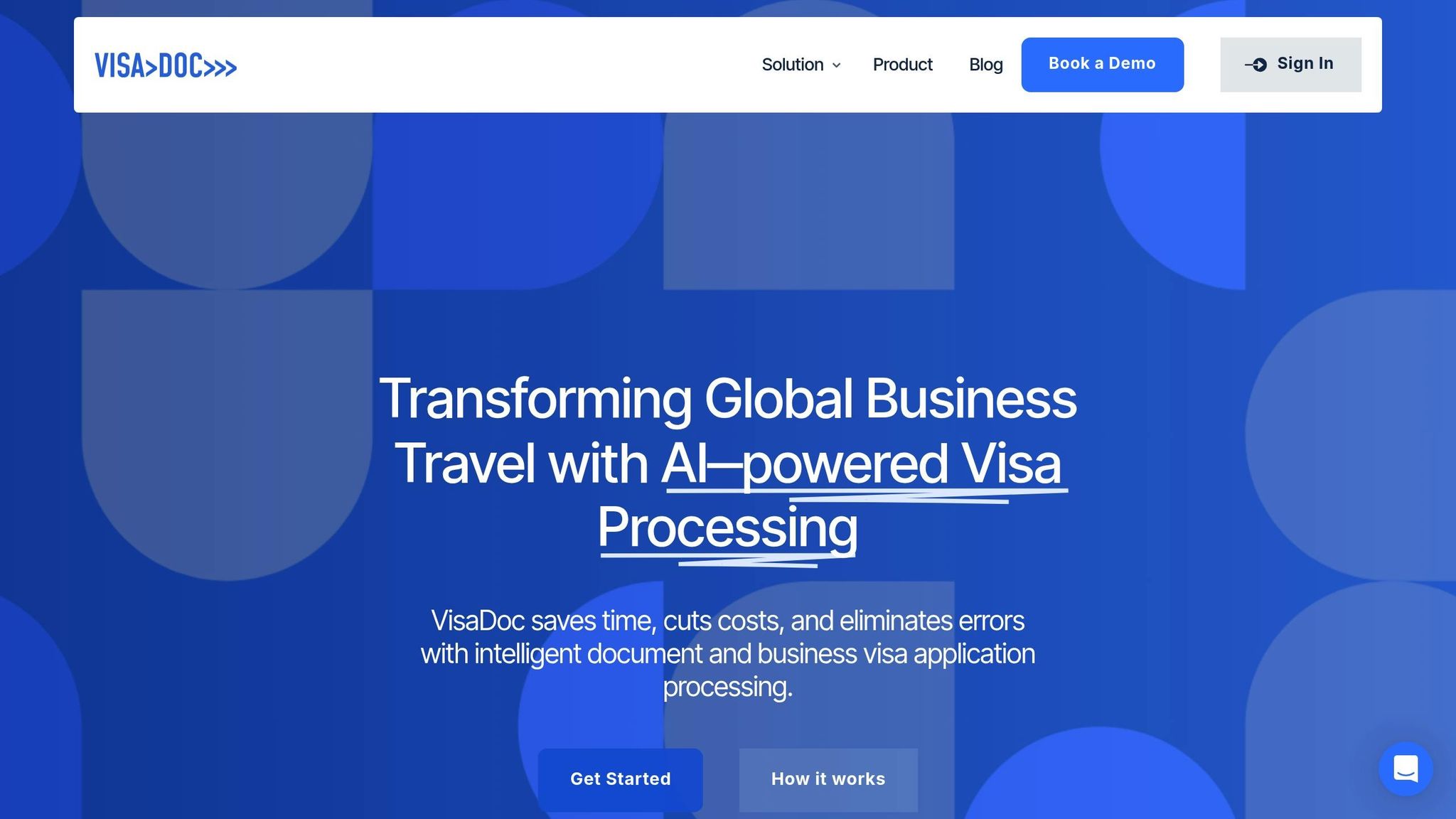
VisaDoc is designed to simplify visa management for Israel's Short-Term R&D Collaboration Visa applications. This cloud-based case management system directly addresses the hurdles HR teams face when coordinating international research partnerships.
"VisaDoc is a cloud-based visa and immigration case management system designed for law firms, HR teams, and immigration consultants to streamline the entire visa application lifecycle. From initial assessments to documentation tracking and submission, VisaDoc provides a centralised, automated platform that simplifies the often complex and compliance-heavy visa process. By digitising workflows and automating repetitive tasks, VisaDoc enables professionals to focus more on client service and less on administrative burdens."
- Imed Bouchrika, PhD, Co-Founder and Chief Data Scientist
VisaDoc’s AI-powered document verification ensures faster and more accurate reviews, a critical feature for R&D visa applications that demand precision. It automatically checks documents against Israeli immigration requirements, saving time and reducing errors when managing multiple applications.
The tool also tracks regulatory changes and flags compliance risks before they escalate, significantly lowering the chances of legal complications. A centralised dashboard offers HR teams a clear overview of all active visa applications, cutting through the confusion of juggling multiple processes across departments.
Additionally, VisaDoc includes a secure client portal that allows researchers to manage their applications independently. They can upload required documents, complete forms, and track their progress without constant involvement from HR, freeing up time for more strategic tasks.
With seamless integration into Microsoft Office and identity verification systems, VisaDoc automates workflows, offering a smoother and more efficient process compared to manual methods.
VisaDoc Benefits vs Manual Processing
The advantages of automated visa management are undeniable, especially considering that 17% of business trips are disrupted due to visa issues, costing companies billions annually. For R&D collaborations, where timing is critical, such delays can jeopardise valuable partnerships.
| Manual Processing | VisaDoc Automated Processing |
|---|---|
| Multiple spreadsheets and email chains, leading to confusion and version control issues | A centralised dashboard provides real-time updates and a single source of truth |
| Risk of errors and delays due to manual document reviews | AI-powered verification ensures accuracy and speeds up reviews |
| Reactive compliance management, often resulting in missed deadlines | Automated compliance checks and reminders prevent oversights |
| Lengthy back-and-forth communications slowing the process | A secure client portal offers self-service features for faster progress |
VisaDoc’s automation delivers immediate time savings with features like reminders, pre-filled forms, and self-service options. This allows HR teams to shift their focus from administrative tasks to strategic workforce planning.
By reducing compliance risks, VisaDoc also helps organisations avoid legal pitfalls. Its customisable workflows ensure consistency across various R&D scenarios, whether for an individual researcher or an entire team.
For companies engaged in global R&D partnerships, VisaDoc transforms visa management into a strategic advantage. It enables HR teams to support innovation by minimising administrative burdens and ensuring smooth, timely visa processing.
Conclusion
The Israel Innovation Ecosystem Business Visitor Program provides a practical solution for fostering global research and development (R&D) partnerships. The Short-Term R&D Collaboration Visa addresses the growing need for international collaboration, with three-quarters of researchers recognising its importance for their organisation and broader global progress.
This programme supports the increasing trend of short-term international travel among researchers. It also offers tangible advantages, as more than 80% of internationally mobile researchers report building stronger professional networks, while over 75% note improvements in their research skills during such exchanges. By simplifying cross-border collaboration, the visa programme delivers clear value to organisations aiming to enhance their R&D efforts.
For HR teams and corporate travel managers, handling multiple R&D visa applications can be overwhelming. VisaDoc steps in to streamline this process, turning a complex administrative task into an opportunity for efficiency. This approach not only simplifies compliance but also creates a foundation for impactful global research partnerships.
As the landscape of global R&D collaboration continues to shift, Israel’s initiative, paired with VisaDoc’s automated solutions, offers a unique edge. Organisations that embrace this combination can focus on advancing their research goals while staying competitive in today’s interconnected world.
FAQs
What steps and documents are needed to apply for Israel's Short-Term R&D Collaboration Visa?
To apply for Israel's Short-Term R&D Collaboration Visa, you’ll need to complete a few essential steps. Start by scheduling an appointment at your nearest Israeli mission. Then, fill out and sign the visa application form, and attend an in-person interview at the consulate or embassy.
Make sure you have the following documents prepared:
- A valid passport: It must have at least three months of validity left after your planned departure date.
- Proof of health insurance: This should cover your entire stay in Israel.
- A recent passport-sized colour photo: The size should be 5 x 5 cm.
- Bank statements: Provide statements from the past three months.
- Employment confirmation or relevant documentation: This could include a letter from your employer or other supporting evidence.
Depending on your situation, you might need to provide additional documents, and there’s also a consular fee involved. To avoid any hiccups, check the specific requirements with the Israeli mission in your country before submitting your application.
What makes the Short-Term R&D Collaboration Visa different from other visas like the B-1 work visa or B-2 business visitor visa in terms of allowed activities?
The Short-Term R&D Collaboration Visa is tailored for international professionals taking part in research and development projects in Israel. Unlike the B-1 work visa, which is aimed at employment in fields such as construction, agriculture, or industry, this visa is strictly for collaborative research efforts and does not allow for general employment.
It also stands apart from the B-2 business visitor visa, which is meant for activities like tourism, attending business meetings, or receiving medical treatment, none of which include work or research. The R&D visa is specifically designed to facilitate short-term international research collaborations, making it a perfect fit for professionals involved in global research initiatives.
What are the consequences of not following visa regulations for visitors and sponsoring organisations in Israel?
Failure to follow visa regulations in Israel can lead to severe consequences for both visitors and the organisations that sponsor them. Visitors who overstay or work without the appropriate authorisation risk fines, deportation, or even imprisonment. In some cases, they could also face re-entry bans lasting up to 10 years.
For sponsoring organisations, the penalties can be equally harsh. Hiring individuals without the correct visa can result in fines of up to ILS 75,300 (roughly £15,800). To avoid these serious repercussions, it’s crucial for visitors and sponsors to adhere strictly to the rules.




